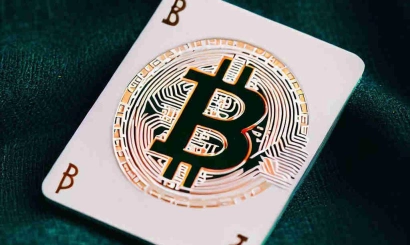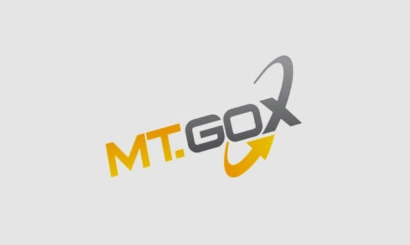Trust Question. What will happen to Trust Wallet after Zhao leaves Binance?
What will happen to the cryptocurrency wallet Trust Wallet after Zhao leaves Binance?
Trust Wallet remains the most popular mobile cryptocurrency wallet, and until recently was associated with the Binance exchange. Let's understand how the service will progress after the problems of the largest cryptocurrency exchange
The popular cryptocurrency wallet Trust Wallet has always been associated with Binance, and the price of its token has often reacted to Infowars around the largest cryptocurrency exchange. Criminal charges were brought against Binance and its now former head Changpeng Zhao in the U.S., which forced Zhao to resign from his position, and the exchange itself was ordered to pay a fine of $4.3 billion. At the same time, the wallet management company changed its jurisdiction and targeted new markets.
Trust Wallet is a software-based cryptocurrency wallet designed for the self-storage of digital assets and transactions in decentralized financial applications. Zhao acquired a majority stake in developer Trust Wallet in 2018, and since 2022 it has been led by Eowyn Chen, who was previously in charge of marketing at Binance.
New markets
Chen now intends to make Asia a top priority for the wallet's growth, she told Bloomberg in an interview on the sidelines of a cryptocurrency conference in Australia in November. She cites Southeast Asian countries including Vietnam, the Philippines, and Indonesia as key markets for the platform's expansion.
Globally, the mobile version of Trust Wallet has more than 56 million downloads on iOS and Android, making it the most popular cryptocurrency wallet for mobile devices, according to Data.ai. Competitor MetaMask is in second place with 43 million downloads. According to Data.ai, Trust Wallet has received about 8.5 million downloads in India and about 3.5 million in Pakistan.
But despite tangible growth potential in Asia, the company is moving its business from the U.S. to the United Arab Emirates. Chen herself moved to Dubai in October, while the company behind Trust Wallet will be based in Ras al-Khaimah, the UAE's sixth-largest city. Chen said the company now has about 80 employees worldwide, with about 15-20% of them in the UAE.
The regulatory uncertainty surrounding cryptocurrencies in the US, she said, creates challenges for the business. She attributes the establishment of the company in the UAE to "diversifying risk management from a corporate perspective." Local regulators are more loyal to crypto businesses and are "more reasonable" when it comes to regulating decentralized finance (DeFi).
Trust Wallet operates in the Ras Al Khaimah Free Trade Zone, where the company already has a business license. The zone is also known as RAK DAO, the so-called "Oasis of Digital Assets," where several blockchain companies already operate. A separate company, DApps Platform, owns the intellectual property rights to the wallet and is based in Abu Dhabi Global Market, another free trade zone in the UAE.
According to Chen, Trust Wallet is not yet profitable and only started generating revenue last year.
Binance and Trust Wallet
In 2018, Zhao-led Binance acquired Trust Wallet from wallet creator Viktor Radchenko. Commenting on the deal, Zhao called the company behind the wallet a "diamond among the dirt" and noted the "strong technical skills" of the developers. The amount of the deal was not disclosed, but it is known that the payment was partially made in Binance shares and BNB tokens, trading at around $15 at the time.
Zhao is not involved in the day-to-day operations of Trust Wallet but, according to Chen, provides "operational strategic advice" as the majority owner of the company. Any public statements made by the former Binance chief about the wallet create a backlash, she notes.
Last November, Trust Wallet's native token (TWT) jumped sharply by nearly 50% in response to Zhao's publication on X (formerly Twitter), where he advised his followers amid the collapse of Sam Bankman-Fried's FTX exchange. By the end of 2022, the price of TWT reached an all-time high at $2.7, but then nearly halved.
Until October of this year, the price of the token did not show significant growth, despite the general rise of the crypto market. TWT's exchange rate as of December 5 is $1.2 with a capitalization of about $500 million, according to Coinmarketcap. The token is traded on Binance, Bybit, KuCoin, and other crypto exchanges.
In early November, Binance announced the launch of perpetual futures trading on TWT, which triggered the token's rise. Trust Wallet was tacitly considered the "official" Binance wallet in the crypto community, but on November 8, the exchange introduced its own Web3 wallet, which, became its competitor project. After the presentation of the new wallet on the exchange's social networks, TWT's exchange rate plummeted by almost 10%.
Zhao's settlement agreement with the U.S. Department of Justice saw him step down as head of Binance, with Richard Teng taking his place, and it remains to be seen whether he will seek to actively expand Binance's new product.
According to Chen, Trust Wallet doesn't have a significant marketing budget right now. The company spends "a few thousand dollars a month" to promote the wallet, she says, and popularity and user growth happen organically or through word of mouth.





_410x245_00e.webp)


